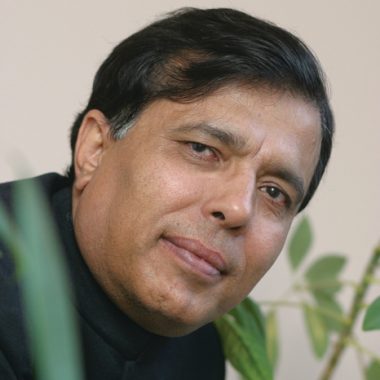In last 100 days, this newly elected government has plunged the NHS – general practice in particular – from crisis to deep crisis. Health policy been characterised by a focus on rhetoric at the expense of detail.
Recently The King’s Fund published its assessment of progress since May, and its conclusion was that Jeremy Hunt may be in office, but increasingly it is the Treasury that is in power. Thanks to Osborne, our beloved NHS is expected to finish the financial year £2bn in debt.
Hardly a day now goes by without some ‘bad news’ story about healthcare. The NHS is coming under relentless attack on grounds of ‘quality’ by politicians and the right-wing press, driving the privatisation agenda. The NHS is on a cliff edge and that underfunding threatens to push it off.
Failure to recruit new GPs is happening at the same time as a third of existing GPs are intending to retire in the next five years. GP practices are rapidly facing a situation where they have neither new or experienced GPs to deliver enough appointments to patients and maintain high quality services.
With medical graduates turning their backs on general practice, there is no sign that the government will be able to fulfil its pledge to recruit 5,000 GPs and open all surgeries seven days a week. The Government’s language on the number of additional GPs that will be recruited and trained has now changed to ‘up to’ 5,000. No plans on how these doctors are being found and paid for have been announced. The idea that paramedics will be asked to act as GPs after 16 weeks of training is deeply disturbing and shows how out of touch the Department of Health and NHS England have become in tackling the general practice crisis. A petition accusing Jeremy Hunt of having ‘alienated the entire NHS family’ with the unrealistic plans has so far attracted more than 201,000 signatures.
General practice is under intense pressure at the moment from a variety of sources to keep surgeries open 8am to 8pm seven days a week. This is overstretching practices in an unsustainable manner. But while GPs are working harder than ever before, they are being hamstrung by declining resources that are undermining their ability to overcome the obstacles they face. Even more worryingly though, GP income streams have declined by 11% while there has in the same period been a 2.3 percentage point rise in the cost of running a practice (including the amount spent on keeping GP practice buildings in good shape, energy bills for GP practices and the amount spent on GP staff, including practice nurses and receptionists). The cost of running a practice now accounts for 61.6% of GP budgets – a huge amount.
I challenge any government to find a model anywhere in the world that can match the range, remit and responsibility that we take on and provide as NHS GPs.
General practice is the most cost-effective and efficient arm of the health service – GPs keep the rest of the NHS stable and secure. Once general practice starts to crumble, the entire NHS will follow, with disastrous consequences for our patients. Instead of taking urgent action to address the real issues facing general practice, the government has focused instead on attacking GPs’ professionalism and announcing a four-year pay freeze, thereby demoralising the very staff on whom patients rely.
There is a clear solution: we need to have long-term, sustained investment across a range of GP services. Practices need to be backed with proper resources, better premises and an expanded workforce. The pipe dreams must stop: it is unfair on GPs and patients to raise expectations that can’t be delivered. Nobody disputes that patients should have access to the same quality of care, seven days a week.
If Hunt is genuine in his commitment, he should be working with the BMA and other unions to achieve a common goal, rather than labelling the BMA a road-block to his reforms. A divisive approach is not in his interests, nor does it serve the public.
Who can disagree with Mark Porter, chair of the BMA Council, when he said: ‘When it comes to the NHS, to describe the Government’s performance over its first 100 days as a disappointment would be a gross understatement.’
This drastic contrast between reality and what is being promised politically is dragging down GP morale. It reinforces the view that the powers that be just don’t get it. An administration, that promised to empower GPs has proved an abject failure on its own terms. GP morale is at its lowest ever level, many are retiring early from the profession in despair, and services are in crisis.
Dr Kailash Chand OBE is the deputy chair of the BMA, and a retired GP
Pulse October survey
Take our July 2025 survey to potentially win £1.000 worth of tokens














